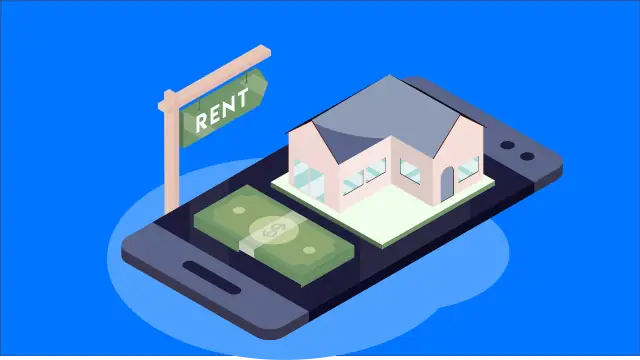How To Create A Property Management App
Learn clues to help you create a successful application for your property business.

Managing a property can be a headache if you don't have a suitable property management mobile app in place to assist you. In a nutshell, property management is more about communication than it is about real estate. It necessitates regular interactions with property owners, tenants, and staff in order to keep everyone happy, establish a loyal customer base, and ensure future growth in a competitive market.
In 2017, the worldwide real estate management software market was worth USD 8.98 billion. By 2025, the global market for real estate management software is estimated to reach USD 12.89 billion. According to IbisWorld, the property management industry in the United States currently employs approximately 290,000 people. So why not jump on the bandwagon and create a next-generation property management mobile app? In this article, we'll go over what it takes to design property management applications and how to do so.

What is Property Management Software?
A Property Management System (PMS) is software that automates and simplifies critical business operations in property management for property managers, owners, and operators. Finances, discourse between renters and landlords, and data storage are all possible business operations. Software for property management systems is typically hosted in the cloud or on a local server.
The various industries and fields which use property management systems include hospitality, manufacturing and logistics, local governments, commercial real estate, and the property management market. The market demand for this type of system is inextricably linked to the real estate market in general. On the other hand, the property management market does not follow the same trends as the real estate industry. It continues to have its own patterns. For example, the property management industry is usually more resistant to economic downturns.
Property Management Software Types
A property management app will be ideal whether you are managing apartment complexes or several properties in multiple places. However, the app's success will be determined by the app model you choose for your company. You can communicate with landlords and tenants while also keeping track of all financial transactions and data storage with the correct solution.
However, before you begin using a property management app, you must first consider what type of property management software you require and how you will apply the features and functionalities. For Companies: Commercial property owners can benefit from property management solutions that allow them to manage office buildings and retail locations. They can do the following with the help of property management systems:
- lessen the time it takes for property upkeep to be completed
- personalize your online reporting
- collect information on leases
- collect rent payments over the internet
- rent increases on a set schedule
For Industries: Offices, warehouses, logistic facilities, and industrial properties are all examples. They perform critical roles such as:
- management of facility upkeep
- management of space
- administration of leases
For Home Owners Associations (HOA) and condo management systems: Condominiums, townhouses, co-ops, and property HOAs all benefit from HOA management software. These systems have properties such as:
- reporting
- e-payments
- accounting
- sublet applicants are subjected to an initial resident screening
For Hotel management systems: Property management software is used by hotels and hostels to:
- make reservations for rooms
- bill-paying
- rooms to be assigned
- check-in and out visitors
- monitor the availability of rooms
Upsides Of Property Management
The property management industry is still relatively new, but it has a lot of potential. Let's take a look at the advantages of putting together a property management system:
- Multiple property management is most likely one of the most compelling reasons for property owners to consider setting up a PMS. This type of software makes accounting, reporting, and communication easier. The owner's portal has all of the relevant information. Property management software streamlines company processes by eliminating the need for third-party solutions, allowing for improved management standardization and efficiency.
- PMS is a product that has the potential to be quite versatile. As a company grows, it is likely to add more functionality to the system, such as revenue management or tenant screening. Keep in mind that an online real estate management system's scalability is only possible with a custom software solution.
- There will be no more paper reports or paperwork. With just a few clicks, you can find the information you need. Furthermore, it offers the highest level of security. It's worth noting that a web-based system provides the easiest access to data rather than a local-based one.
- A company's best friend is automation. Your team will be able to focus more on productive projects by automating repetitive operations such as property vacancy posting, billing, and tenant responses. Furthermore, the chance of making an error is much reduced.
- You may cover all conceivable channels for delivering your rental or hotel services with a unique property management system.
- You can combine your solution with chatbots or virtual assistants to deliver outstanding service to your guests at any moment and from any place.
What Do Property Managers Use Excel For?
Many property managers who are just starting in the profession still use Excel. While property management software is ideal for businesses with more than a few units, Excel is still a popular choice for small businesses. Property managers basic excel to record the information they need regularly. Some of the things they record are income and expenditure for each property, its financial data, maintenance requests, and a list of ongoing maintenance tasks.
Even with the smallest portfolios, keeping track of all of these variables with spreadsheets is difficult. While Excel property management thrives at what it's supposed to do, it does have its limitations. The leasing information is not centralized or automated, which costs time and leads to data inaccuracies that are often costly. And calculating utilities in a restored property is typically a jumble that only a few individuals can sort out.
Make a Spreadsheet for Your Rental Property
It takes some time and effort to set up a property management spreadsheet. To keep track of everything, you should include as much or as little data as you need. It's simple to make a monthly income and spending table in the double-entry bookkeeping manner. This needs very little skill and does not necessitate the use of any formulas. Excel Spreadsheets are a versatile and ever-useful tool.
A spreadsheet can rapidly and simply execute complex calculations. Once you've created a simple template, all you have to do now is put in the information, and the spreadsheet will take care of the rest. Property managers can print a spreadsheet to a PDF file and email it to their accountant or share it with someone if it's a cloud-based spreadsheet. A property management spreadsheet is ideal for landlords with a small number of properties. Keeping track of modest revenue and expenditure on a spreadsheet is simple when you only have one or two homes.
How Do Property Managers Get Organized?
Property managers always have a contingency plan- a comprehensive strategy that will help them in certain situations. Even amid a crisis, having a strategy ensures that everything works as smoothly as possible. Property managers have a clear idea about what is better suited to be outsourced. They are familiar with their strengths and shortcomings and have competent staff who are always on call. With too many hard-copy reports and papers, a property management business can rapidly become disorganized. It also necessitates a great deal more effort to maintain everything in order.
Property management software can help you save time and money by eliminating the need for paperwork and allowing you to submit reports electronically. Property managers decide on a mutually desirable communication technique that will serve as a benchmark. They know how to please the owner and yet perform effectively on the property management. A property manager's goal is to reduce the hassles and turmoil of managing one or more properties. They carefully plan and structure for various situations that may arise to prevent any mishaps.
Which Is The Best App For Property?
Finding a house on the internet is more effective than relying on a real estate agent who is only concerned with increasing his commission and does not comprehend what you want from your home. As a result of the profusion of real estate websites and property applications available, it can be strenuous to decide where to start. We came up with a shortlist of platforms after researching the listings and looking at what apps were popular.
- NoBroker
NoBroker performs a great job with listings and details on estates. You'll realize residences are listed by their owners, which means you won't have to pay a large brokerage charge, and the company claims to verify all of the owners. The owners must follow a checklist to guarantee that all listings contain sufficient information to be relevant.
- 99acres
99acres offers a listing quality filter that allows you to limit the results to residences with images or videos or just properties that 99acres has physically confirmed.
- Nestoria
Nestoria differs from the other applications on this list in that it does not directly aggregate listings. Nestoria is an aggregator for aggregators; therefore, a search on the site would return results from Housing.com, Makaan, NoBroker, Commonfloor, and 99acres.





